高考英语 总复习 语法强攻 虚拟语气
- 格式:ppt
- 大小:542.50 KB
- 文档页数:35
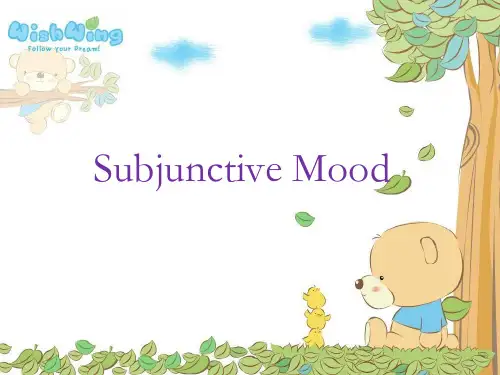
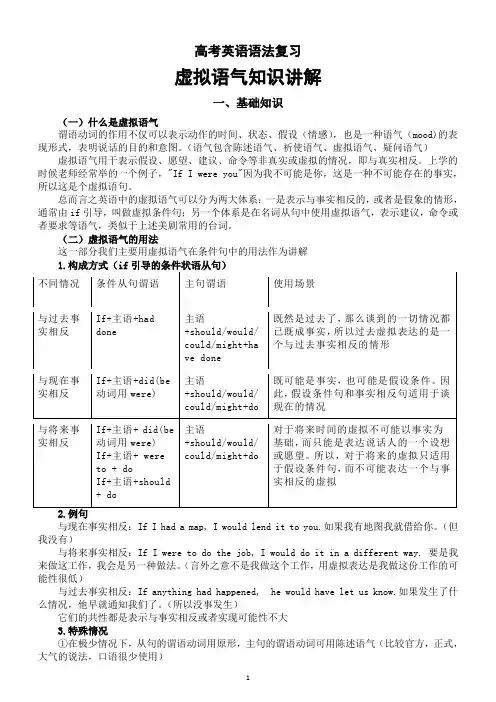
高考英语语法复习虚拟语气知识讲解一、基础知识(一)什么是虚拟语气谓语动词的作用不仅可以表示动作的时间、状态、假设(情感),也是一种语气(mood)的表现形式,表明说话的目的和意图。
(语气包含陈述语气、祈使语气、虚拟语气、疑问语气)虚拟语气用于表示假设、愿望、建议、命令等非真实或虚拟的情况,即与真实相反。
上学的时候老师经常举的一个例子,"If I were you"因为我不可能是你,这是一种不可能存在的事实,所以这是个虚拟语句。
总而言之英语中的虚拟语气可以分为两大体系:一是表示与事实相反的,或者是假象的情形,通常由if引导,叫做虚拟条件句;另一个体系是在名词从句中使用虚拟语气,表示建议,命令或者要求等语气,类似于上述美剧常用的台词。
(二)虚拟语气的用法这一部分我们主要用虚拟语气在条件句中的用法作为讲解与现在事实相反:If I had a map, I would lend it to you.如果我有地图我就借给你。
(但我没有)与将来事实相反:If I were to do the job, I would do it in a different way. 要是我来做这工作,我会是另一种做法。
(言外之意不是我做这个工作,用虚拟表达是我做这份工作的可能性很低)与过去事实相反:If anything had happened, he would have let us know.如果发生了什么情况,他早就通知我们了。
(所以没事发生)它们的共性都是表示与事实相反或者实现可能性不大3.特殊情况①在极少情况下,从句的谓语动词用原形,主句的谓语动词可用陈述语气(比较官方,正式,大气的说法,口语很少使用)If that be the official view, it cannot be accepted.如果这是官方的看法,这是不能接受的。
②if可以省略,但是语序要改为倒装Were I Tom I would refuse.如果我是汤姆我会拒绝。
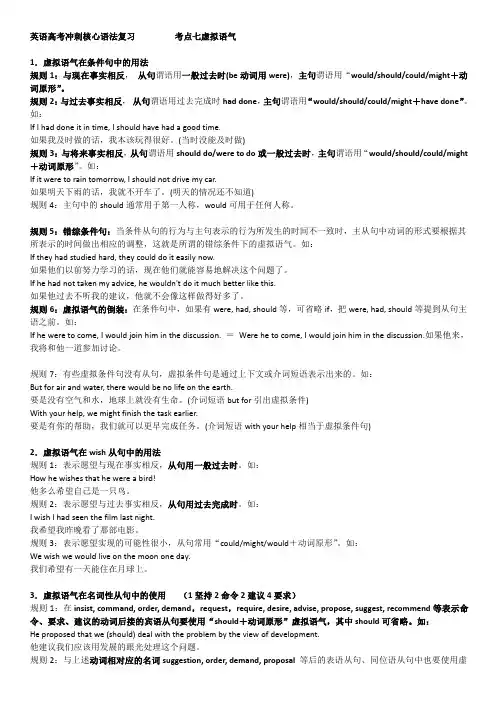
英语高考冲刺核心语法复习考点七虚拟语气1.虚拟语气在条件句中的用法规则1:与现在事实相反,从句谓语用一般过去时(be动词用were),主句谓语用“would/should/could/might+动词原形”。
规则2:与过去事实相反,从句谓语用过去完成时had done,主句谓语用“would/should/could/might+have done”。
如:If I had done it in time,I should have had a good time.如果我及时做的话,我本该玩得很好。
(当时没能及时做)规则3:与将来事实相反,从句谓语用should do/were to do或一般过去时,主句谓语用“would/should/could/might +动词原形”。
如:If it were to rain tomorrow,I should not drive my car.如果明天下雨的话,我就不开车了。
(明天的情况还不知道)规则4:主句中的should通常用于第一人称,would可用于任何人称。
规则5:错综条件句:当条件从句的行为与主句表示的行为所发生的时间不一致时,主从句中动词的形式要根据其所表示的时间做出相应的调整,这就是所谓的错综条件下的虚拟语气。
如:If they had studied hard,they could do it easily now.如果他们以前努力学习的话,现在他们就能容易地解决这个问题了。
If he had not taken my advice,he wouldn't do it much better like this.如果他过去不听我的建议,他就不会像这样做得好多了。
规则6:虚拟语气的倒装:在条件句中,如果有were,had,should等,可省略if,把were,had,should等提到从句主语之前。
如:If he were to come,I would join him in the discussion.=Were he to come,I would join him in the discussion.如果他来,我将和他一道参加讨论。
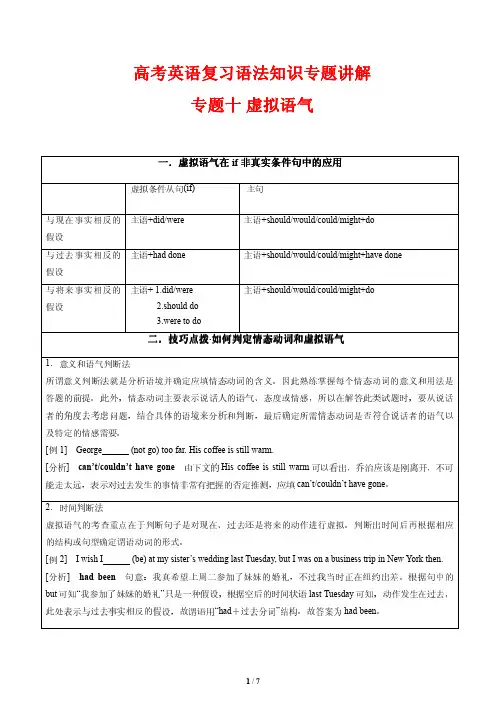
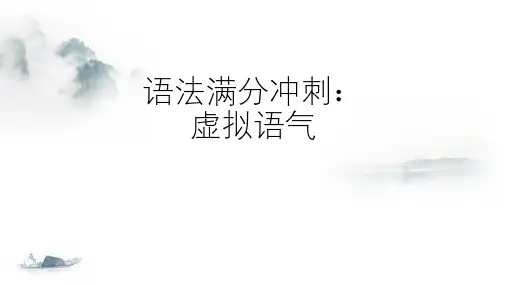
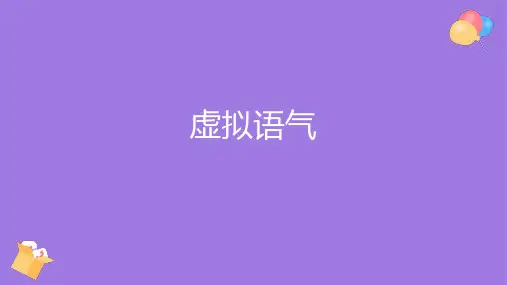
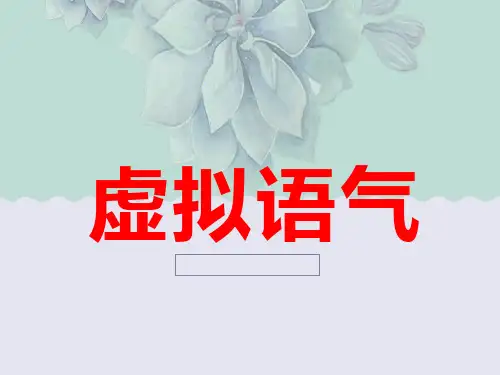
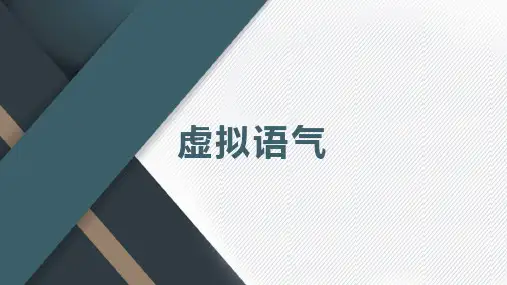
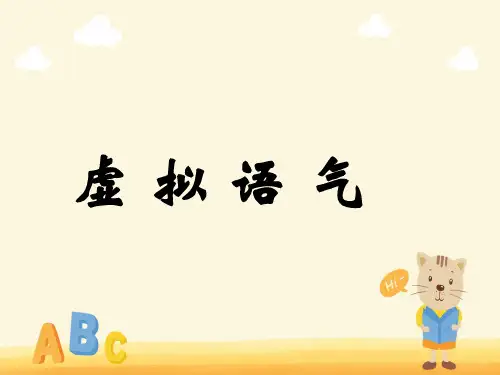
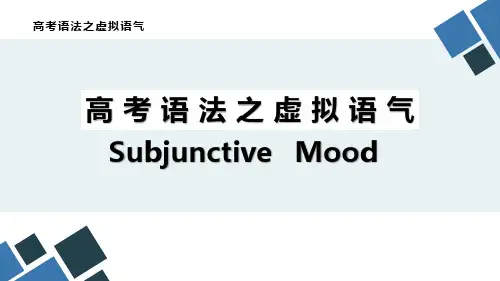
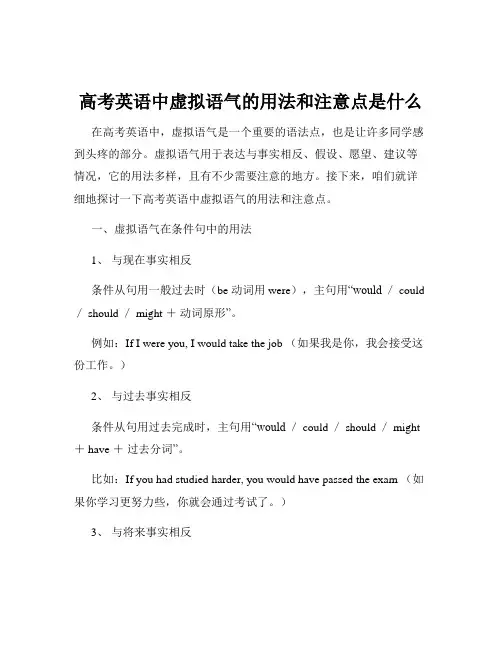
高考英语中虚拟语气的用法和注意点是什么在高考英语中,虚拟语气是一个重要的语法点,也是让许多同学感到头疼的部分。
虚拟语气用于表达与事实相反、假设、愿望、建议等情况,它的用法多样,且有不少需要注意的地方。
接下来,咱们就详细地探讨一下高考英语中虚拟语气的用法和注意点。
一、虚拟语气在条件句中的用法1、与现在事实相反条件从句用一般过去时(be 动词用 were),主句用“would / could / should / might +动词原形”。
例如:If I were you, I would take the job (如果我是你,我会接受这份工作。
)2、与过去事实相反条件从句用过去完成时,主句用“would / could / should / might + have +过去分词”。
比如:If you had studied harder, you would have passed the exam (如果你学习更努力些,你就会通过考试了。
)3、与将来事实相反条件从句有三种形式:① should +动词原形;② were to +动词原形;③一般过去时。
主句用“wou ld / could / should / might +动词原形”。
举个例子:If it should rain tomorrow, we would stay at home (要是明天下雨,我们就待在家里。
)二、虚拟语气在宾语从句中的用法1、 wish 后的宾语从句表示与现在事实相反,用一般过去时;表示与过去事实相反,用过去完成时;表示与将来事实相反,用“would / could +动词原形”。
例如:I wish I were as tall as you (我希望我和你一样高。
)2、表示“建议、要求、命令”等动词后的宾语从句这类动词有suggest(建议)、advise(建议)、insist(坚持要求)、order(命令)、demand(要求)等,从句谓语用“should +动词原形”,should 可以省略。
高三虚拟语气语法知识点在高三英语学习中,虚拟语气是一个重要的语法知识点。
掌握虚拟语气的用法,不仅可以提高语言表达的准确性,还能够帮助我们更好地理解和阅读文本。
本文将为大家介绍关于高三虚拟语气的几个重要知识点。
一、虚拟语气的基本用法虚拟语气是一种表达假设、愿望、建议等非真实情况的语气,分为与现在事实相反的虚拟和与过去事实相反的虚拟。
虚拟语气常常由动词的过去式或should/were等形式来表示。
下面是一些常见的虚拟语气用法:1. 与现在事实相反的虚拟:- If I were you, I would study harder.(与现实相反的假设)- I wish I had more time to travel.(对现在情况的非真实愿望) - It is high time that he stopped procrastinating.(表示应当发生但事实尚未发生的情况)2. 与过去事实相反的虚拟:- If he had arrived on time, he would have caught the train.(与现实相反的假设)- I wish I hadn't made that mistake.(对过去情况的非真实愿望) - If I had known, I would have helped you.(对过去未知情况的推测)二、虚拟语气在条件句中的用法虚拟语气经常出现在条件句中,条件句分为三种类型:与现在事实相反的虚拟条件句、与过去事实相反的虚拟条件句和对将来可能情况的虚拟条件句。
下面是对应的用法:1. 与现在事实相反的虚拟条件句:- If he were here, he would help you.(如果他在这里,他会帮助你。
)- If I had a lot of money, I would travel around the world.(如果我有很多钱,我会环游世界。
专题十七强调句I、重点难点解析高考命题导向:“It is/was…who/that…”强调句型是重要的句型之一,是高考考查的重点之一。
此句型可强调主语、宾语、状语。
如果强调谓语时,用do/does/did+动词原形。
高考通常考查强调句与几个易混句型连词的使用和强调句的问句。
强调句型注意事项一览表强调句型注意事项说明例句1强调主语,其后的谓语动词和主语在人称和数上保持一致。
It is he who/that often does good deeds.It is I who/that am looking for you.2 强调部分除了指人可用who/whom,其他只能用thatIt is the book that I want.3 not until…句型的强调句It was not until you told me that I realized my mistake.可转换为以下句型:1) Not until you told me did I realize mymistake. 2) I didn’t realize my mistake until you told me. 4与主语从句(It is / was… that -clause)的区别1)It is true/a fact that they won the game.(it是形式主语)2)It was in Xiamen that I first met him.(强调句的特点:去掉It was…that后句子仍成立。
5与“It be…before (时间过多久才…) / since(自…以来多长时间了)句型的区别1)It was two hours before he worked out the problem.(两个小时后他才算出这道题)2)It is two years since he joined the army.(他参军两年了)6与“It be…when/where定语从句的区别1)It was in 1919 that he was born.( (强调句)It was 1919 when the May 4th Movement took place. ( 定语从句)2)It was in Bejing that I met him.( (强调句)It was Beijing where I met him.( 定语从句)II、实战演练填入适当的连词或疑问词1. It was along the Mississippi River ______________ Mark Twain spent much of his childhood.2. It is the ability to do the job ___________ matters, not where you came from or what you are.3. ---What was the party like?---Wonderful. It is years ___________ I enjoyed myself so much.4. It was October __________ they finally came back to their hometown.5. It was in the lab that was taken charge of by Professor Li ____________ they did theexperiment.6. It will be more than 100 years ____________ the country begins once again to look as it didbefore.7. ___________ is it that has made Peter what he is today.8. I’ve already forgotten _____________ it was that you put the dictionary.9. I have always been hones and straightforward, and it doesn’t matter __________ it is I amtalking to.10. It was _____________ he did ______________ frightened me.答案:1. that 2. that 3. since 4. when 5. that 6. before 7. what 8. where 9. who 10. what; that专题十八虚拟语气I、重点难点解析虚拟语气的高考命题导向:虚拟语气表示说话人的愿望、假设、猜测或建议,而不是表示客观存在的事实。
高考英语语法复习情态动词与虚拟语气知识讲解一、情态动词(1)表示能力时,can只用于一般现在时,could仅用于一般过去时;而be able to则有更多的时态,如将来时、完成时等。
I haven’t been able to read that report yet.He will be able to skate as well as you.(2)Was/were able to表示能力时,侧重经过努力而成功做到某事;而could仅表示具备能力,不说明是否实施了能力。
He studied hard and was able to pass the exam.(3)用在其他动词,如might,may,would,want,hope等之后表示能力只能用be able to。
He might be able to fix your car.(1)must还可以表示质问或感情色彩,意为“偏要,偏偏”。
Why must it snow on Saturday?(2)should还可以表示惊奇、愤怒、失望等特殊情感,尤其用在以why,who,how等开头的疑问句中或某些感叹句中。
why should you be so late today?(1)must作“必须”讲的一般疑问句,其肯定回答用must,否定回答用needn’t或don’t have to。
-Must I pay now?-Yes, you must./No, you needn’t.(2)need还可以作实义动词,有人称和数的变化,后跟带to的不定式作宾语。
She needed to go out for a walk.(1)两者在表示过去的习惯动作或行为时常可通用。
When we were children, we would/used to go skating every winter.(2)Used to与would都不能与表示具体频率、次数的词及特定的时间状语或具体的一段时间连用。
高考英语虚拟语气一、虚拟条件句中的虚拟语气1、表示与现在事实相反的情况从句:If+主语+did (be动词用were)主句:主语+ should/would/might/ could + doIf I were you, I would take an umbrella.如果我是你,我会带把伞。
(事实:我不可能是你)If I knew his telephone number, I would tell you.如果我知道他的电话号码,我就会告诉你。
(事实:不知道)If there were no air or water, there would be no living things on the earth.如果没有水和空气,地球上就不会有生物。
(事实:地球上既有空气也有水)2、表示与过去事实相反的情况从句:If+主语+ had + done主句:主语+should/would/might/could+have doneIf I had got there earlier, I should/would have met her.如果我早到那儿,我就会见到她(事实:去晚了)。
If he had taken my advice, he would not have made such a mistake.如果他听我的劝告的话,就不会犯这样的错误了。
(事实:没有听我的话)3、表示与将来事实相反的情况从句:①if+主语+were to do②if+主语+should+do③if+主语+过去式(be动词用were)主句:主语+should/would/might/could+doIf he should come here tomorrow, I would talk to him.如果他明天来这儿的话,我就跟他谈谈。
(事实:不可能来)If there were a heavy snow next Sunday, we would go skating.如果下周日下大雪,我们就去滑冰。